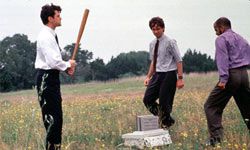Eight hours a day, 40 hours a week, 2,000 hours a year -- for the average nine-to-fiver, that's a lot of your life spent working. Add to that the 192 hours a year the typical person spends commuting to work, and you've wasted more than 25 percent of your working life if you're not doing something you love [source: Gallup].
If you've been applying for jobs to no avail, or simply hate the one you currently have, don't give up. It's important to find a career that you love, and, although it might seem like it, it's not an impossible task. With a little perseverance and patience, our five tips for finding a job you love will get you on your way to a happier work life.
Advertisement


